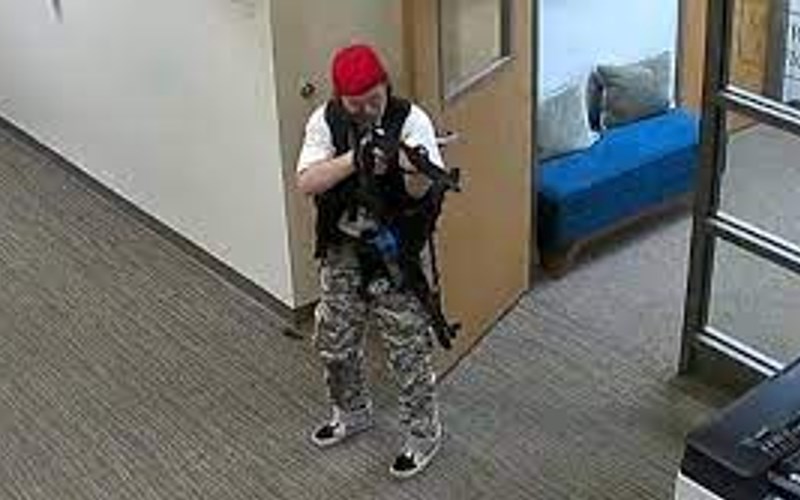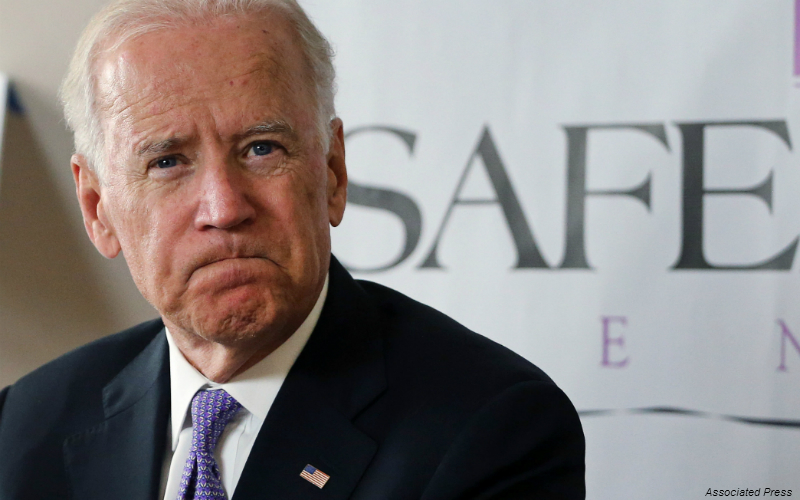What was leaked to Michael Patrick Leahy of The Tennessee Star shows the troubled and violent mind of the transgender shooter, a former student at The Covenant School.
Hale, 28, killed three children and three adults last spring at the private Christian school before fast-reacting police officers found the shooter and killed her.

Leahy was ordered to appear before Tennessee Chancery Court Judge l’Ashea Myles for a show cause hearing on Monday. The purpose was to determine whether the information published by the Star interfered with a lawsuit brought by Leahy and the Star’s parent company, Star News Digital Media Inc., that seeks to compel the full release of Hale’s writings, the Star itself reported.
Myles has suggested that Leahy could be charged with contempt of court but appeared to back off her threat Monday, The Star reported.
Hale considered other targets as part of her meticulous planning but ultimately chose a spot with which she was very familiar.
Hale chose weak target
Despite that fact Hale attended the school years earlier, Covenant School wasn’t picked because of Hale’s experiences there, legal expert John Lott said on Washington Watch Tuesday.
At the time of the shooting, some media sources jumped to Hale's defense because the shooter identified as transgender so the Christian school itself was blamed for becoming a target.
“Apparently, she looked at three other targets. A local mall was her first target, and then there were a couple of other schools that she had looked at but had decided not to go after any of those because of armed security that was available at those,” Lott told show host Tony Perkins.
The Green Hills Mall in the Nashville area allows its guests to carry concealed handguns, Lott said.
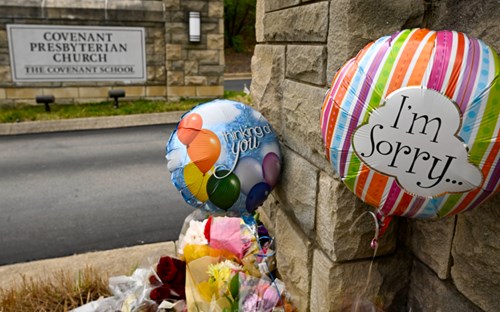 “She picked this school because she had checked it out and didn’t believe there was any security there to stop her during the attack,” he said.
“She picked this school because she had checked it out and didn’t believe there was any security there to stop her during the attack,” he said.
There’s a common denominator among suicidal mass shooters.
“Anybody who reads the diaries and manifestos for these mass murderers knows that there’s a huge amount of similarities across them. You have individuals who are suicidal, but they want to commit suicide in a way that’s going to get them media attention, and they know the more people they kill, the more media attention they’re going to get,” Lott said.
Reading the writings of Hale, a graphic designer at the time of the shooting, has been problematic because the FBI has worked hard to keep them from public consumption.
“We’ve had a couple of leaks that have occurred. Some months ago, we had three pages that were leaked. In the last week or so we’ve had almost four dozen other pages that were obtained by the Tennessee Star,” Lott said.
It’s the second, more extensive amount of leaked documents that has Star editor Leahy in court.
Why squash the information?
There’s a lot about the shooter to be gleaned from the leaked information, Lott said, particularly in the communication between the FBI and the Nashville police.
“To me, the most interesting thing is the FBI’s letter to the Nashville Police Department about why they demanded that this diary remain a secret and not be released to the public, that they were worried that if it was released it would cause a backlash against transgender individuals,” Lott said.
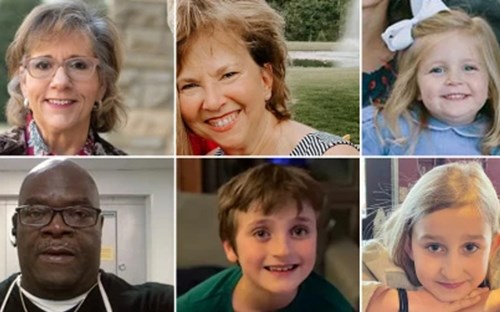 The FBI also expressed concern about “people not properly understanding the information” they would consume, Lott said.
The FBI also expressed concern about “people not properly understanding the information” they would consume, Lott said.
The heavy-handedness in suppressing information is not common for this type of crime, Lott said.
“This is the first time I know of that we’ve been able to find where the FBI has stepped in and demanded that that a diary or manifesto from these mass murders not be released to the public,” he said.
Given White House policies in the military, in education, public proclamations for Pride Month, Transgender Day of Visibility and more, it’s not a great leap of reasoning to conclude the government is working to shield the transgender community.
“My guess is if it was a white supremacist or something, not only would the FBI be making a big deal about it, but the President would be out there talking about it,” Lott said.
Data from the Violence Project, a nonprofit that studies gun violence, says that only four-tenths of 1% of mass shooters identify as transgender compared to 97% who identify as male.
That apparently small number still leaves individuals who identify as transgender greatly overrepresented in these events, Lott said. And the numbers are recent.
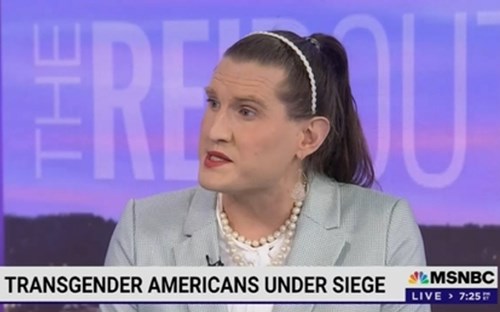 “Since 2018 they’re (represented) more than seven times their share of the U.S. population engaging these attacks,” he said.
“Since 2018 they’re (represented) more than seven times their share of the U.S. population engaging these attacks,” he said.
Immediately after the shooting, NBC News reported transgenders in the Nashville area feared a backlash. A British tabloid, The Daily Mail, said Hale felt rejected by her parents.
A leaked memo at CBS News told its correspondents and anchors to avoid mentioning Hale identified as transgender because that "has no known relevance to the crime."
On liberal MSNBC, transgender activist “Charlotte” Clymer (pictured above) warned the audience about the right-wing threat to transgenders in light of the school massacre.
The shooter’s emotional state
Police said Hale was under care for an emotional disorder and was hiding guns at home, according to CNN.
“About 51% of the mass public shooters over the last 25 years were seeing mental healthcare professionals fairly close to the time that the attack was occurring,” but in no single case was the shooter identified as a danger to themselves or others before the attack, Lott said.
Hale’s emotional state is still no reason for authorities to work to keep her writings from the public, Lott argued.
“Obviously, this person was disturbed. Obviously, she had severe mental health problems," he observed. "She was clearly suicidal, but this could be applied to lots of manifestos or diaries that these killers have, and yet they haven’t made the same type of demands from local police departments.”


